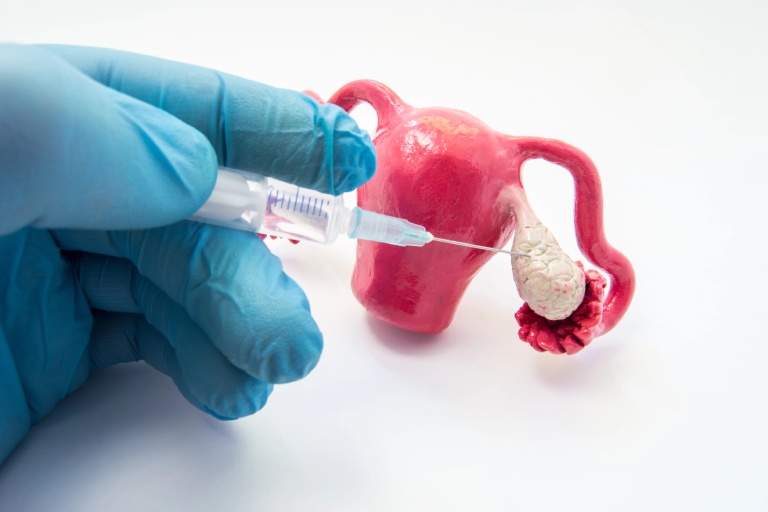
Embarking on a surrogacy journey is a significant decision, and understanding the surrogacy success rate is crucial for intended parents considering this path to parenthood.
Surrogacy offers hope to individuals and couples facing infertility, medical conditions, or other circumstances that prevent them from carrying a pregnancy themselves. While surrogacy has enabled many families to welcome children into their lives, success rates can vary based on numerous factors.
In this article, we will explore the factors that determine the success rate of surrogacy, review key statistics, and discuss practical steps intended parents can take to maximize their chances of success.
What Is the Success Rates of Surrogacy?
This question is essential because the journey requires substantial emotional, financial, and physical investment. Advancements in reproductive medicine, rigorous screening of gestational carriers, and improved fertility treatments have contributed to high success rates.
However, various factors can influence the likelihood of a successful pregnancy and birth. The success of a surrogacy journey depends on several medical and logistical factors. Generally, surrogacy has a higher success rate than natural conception for couples with fertility challenges.
This is because surrogacy typically involves in vitro fertilization (IVF), where the most viable embryos are selected for transfer to a healthy gestational carrier.
How Is Surrogacy Success Measured?
When discussing the success rate of surrogacy, different metrics are considered:
- Implantation Rate: The percentage of transferred embryos that successfully attach to the gestational carrier’s uterine lining.
- Clinical Pregnancy Rate: The percentage of embryo transfers that result in a confirmed pregnancy with a detectable fetal heartbeat.
- Live Birth Rate: The percentage of pregnancies that result in the birth of a healthy baby.
According to the Centers for Disease Control and Prevention (CDC), the average success rate of surrogacy in the United States is approximately 75%. Once the gestational carrier is pregnant, the success rate can increase up to 95%.
Factors That Influence the Success Rate of Surrogacy
While surrogacy has high success rates, various factors contribute to the likelihood of a healthy pregnancy and live birth. Understanding these elements can help intended parents make informed decisions throughout their journey.
Age and Quality of the Egg Donor
The quality of the egg used in IVF plays a crucial role in the success of surrogacy. Eggs from younger donors—typically under the age of 35—tend to have better viability, leading to higher embryo implantation and pregnancy rates.
Many intended parents choose to work with an egg donor rather than using their own eggs, especially if maternal age or health conditions could affect embryo quality.
Sperm Quality
The sperm used in IVF also contributes to the success of surrogacy. Factors such as sperm motility (movement), morphology (shape), and overall count impact fertilization and embryo development. Intended parents facing male infertility challenges may opt for sperm donors to increase the chances of producing high-quality embryos.
Health and Uterine Environment of the Gestational Carrier
The gestational carrier plays a vital role in ensuring a healthy pregnancy. Candidates undergo thorough medical and psychological screening to assess their ability to carry a pregnancy to term for another couple. Clinics typically select gestational carriers who:
- Have a history of successful, full-term pregnancies.
- Are in good physical and mental health.
- Do not have any underlying conditions that could impact pregnancy.
A well-matched and well-supported gestational carrier significantly improves the success rate of surrogacy.
Fertility Clinic Expertise and Protocols
The clinic facilitating the surrogacy journey has a direct impact on its success. Fertility clinics with advanced technologies, experienced embryologists, and rigorous screening processes report higher success rates.
Clinics vary in their approach to embryo transfer, use of genetic testing, medication protocols and laboratory techniques, all of which affect overall surrogacy outcomes.
What to Expect During Your Surrogacy Journey
For intended parents, understanding the surrogacy process is essential for a smooth and successful experience. From initial consultations to bringing home your baby, each step is carefully structured to ensure the best possible outcome. Here’s an overview of what to expect:
Initial Consultation and Matching
The journey begins with a consultation at a surrogacy agency, like Carrying Dreams. This step helps intended parents understand the medical, legal, and financial aspects of surrogacy. Afterward, the agency works to match them with suitable surrogates based on history, lifestyle, criteria and personal preferences.
Legal Agreements and Medical Screenings
Before proceeding with medical treatments, both the surrogate (and spouse/partner if applicable) undergo thorough medical screenings to ensure they meet health criteria. Additionally, legal contracts are created to outline the rights, responsibilities, and financial arrangements for both parties.
Embryo Transfer and Pregnancy Monitoring
Once the legal and medical requirements are met, the fertility clinic prepares the surrogate for the embryo transfer using IVF. Following a successful implantation, the surrogate undergoes routine prenatal care to ensure the health and well-being of the pregnancy.
Delivery and Parenthood
As the pregnancy progresses, intended parents remain engaged and prepare for the arrival of their baby. At the appropriate time, the surrogate delivers the baby, and the intended parents can welcome their child home.
Improving the Chances of a Successful Surrogacy Journey
While the success rate of surrogacy is already high, intended parents can take proactive steps to improve their chances of a smooth and successful experience. Here are key recommendations:
- Work with a Reputable Surrogacy Agency – like Carrying Dreams
Choosing a full-service agency ensures that the matching process, medical evaluations, and legal agreements are handled professionally. Agencies with experience in international surrogacy arrangements, like Carrying Dreams, can also assist intended parents from different countries.
- Select a Highly Qualified Fertility Clinic
Research clinics with proven success in third-party and surrogacy cases. Reviewing clinic statistics, patient testimonials, and expert recommendations can help ensure that you receive the best medical care.
- Consider Genetic Screening for Embryos
Preimplantation genetic testing (PGT) helps identify the healthiest embryos for transfer. This process reduces the risk of implantation failure and increases the chances of a viable pregnancy.
- Ensure Proper Support for the Gestational Carrier
Gestational carriers who receive excellent medical care, emotional support, and general appreciation are more likely to have a positive pregnancy experience. Intended parents should stay engaged and provide encouragement throughout the journey.
Navigate Your Surrogacy Journey with Confidence
The decision to pursue surrogacy is life-changing, and understanding the factors that influence its success can help intended parents feel more confident and prepared. With careful planning, the right medical team, and a strong support network, the likelihood of a successful surrogacy journey is significantly increased.
At Carrying Dreams, we understand that the surrogacy journey is deeply personal and filled with emotions, hope, and anticipation. As a full-service surrogacy and egg donation agency based in the United States, we provide expert guidance to intended parents worldwide.
If you’re ready to take the next step in building your family through surrogacy, we are here to help you navigate every detail with confidence and care.



